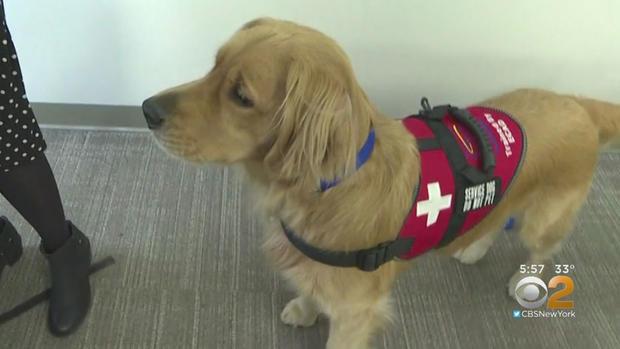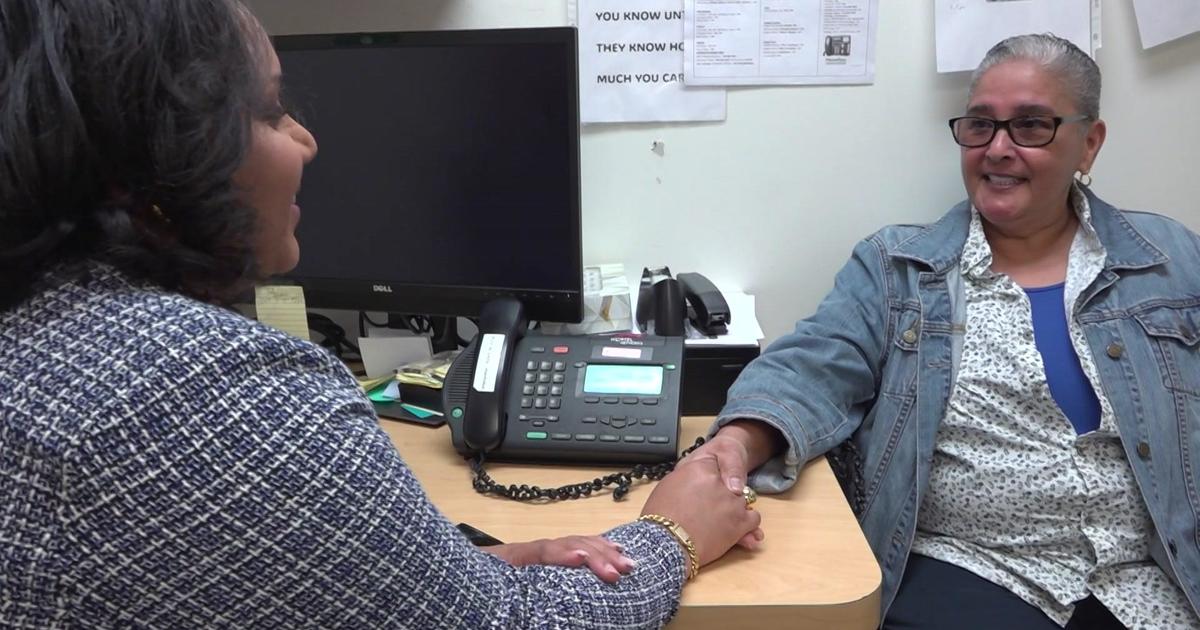Pace University Program Teaches Future Health Care Professionals How To Interact With Service Animals
NEW YORK (CBSNewYork) -- A local university is teaching "canine consideration" to future health care professionals who will need to know the doggy do's and don'ts when they encounter patients who use service animals.
"This is the most huggable dog in the world. Just seeing that smile on his face, you had to fight back at every urge," student Noah Brennan told CBS2's Tony Aiello.
Resisting the urge to pet or hug Spirit the service dog is lesson number one for students in the "Canines Assisting in Health" program at Pace University, one of the first of its kind.
The students in the program are future health care professionals who will deal with people with physical disabilities who use service dogs and others with conditions, such as PTSD, who count on the dogs for comfort.
"Individuals with service dogs often tell us that when they walk into a health care facility, it is the health care professionals who are the ones who are distracting the service dog, who are asking 'can I take a selfie with you with your service dog?'" Pace University professor Dr. Joanne Singleton said. "Not having that basic knowledge puts the person at risk, puts the service dog at risk."
A rule of thumb, just as you wouldn't fiddle with someone's wheelchair, you shouldn't touch their service animal.
"Distracts him, right? And we don't want him or the person he's working for to get injured because of that distraction," Singleton said.
RELATED STORY: Fake Service Animal Registrations Making It Harder For Those Who Really Need Them
Class topics include ground rules for dogs staying with clients in the hospital and how to respectfully determine if a dog is a legitimate service animal.
Students say learning these canine considerations shows basic respect to service dog users.
"If you're already going to talk to a health care professional, you probably have plenty on your mind and interacting with your service animal should not be one of those worries that they have," Brennan said.
At Pace University, they call Spirit a "paw-fessor." He's also used in continuing education programs for health care professionals at local hospitals.




